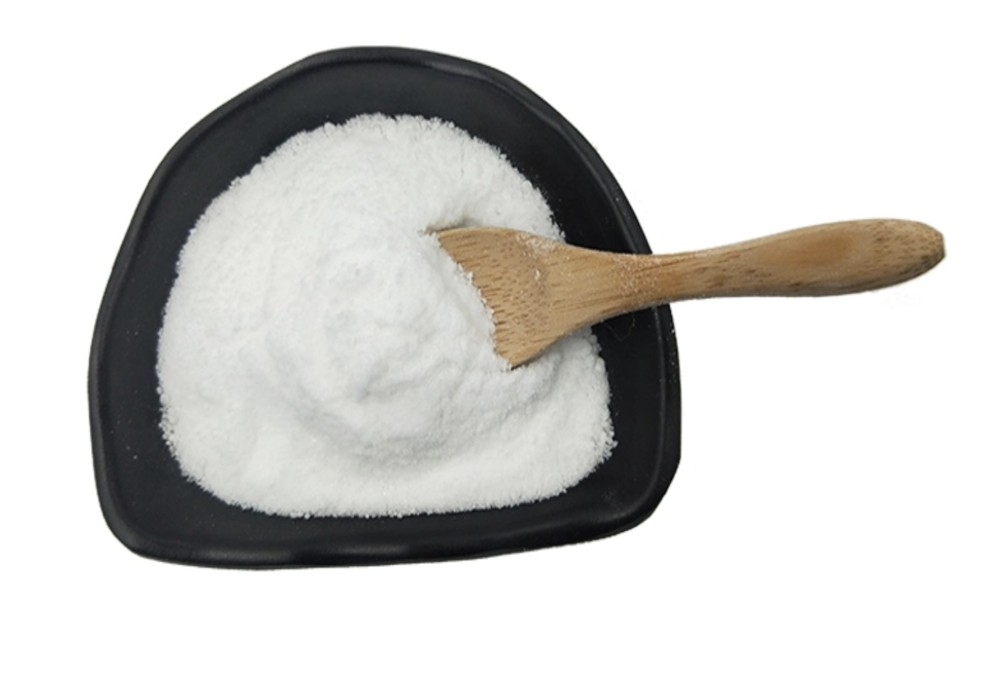CAS No.:56-40-6
EINECS No.:200-272-2
MF:C2H5NO2
Purity:98.5%min
Physical-chemistry property: White crystal powder, sweet taste, easy to be dissolved in water, slightly dissolved in methanol and ethanol, but not dissolved in acetone and ether.
Glycine (Abbreviated Gly) is one of the 20 amino acids. It is widely used in the pharmaceutical, feed and food processing industries.
As food additive, it is mainly used as flavoring, sweetener and nutritional supplement. It is also added in butter, cheese and margarine for prolonging the storage life.
As feed additive, it is added in the feed for increasing the appetites for the poultry and the domestic animals, especially for pets.
As pharmaceutical intermediate, Glycine is used as the raw material of cephalosporin, aureomycin buffer, VB6 and Threonine etc. and the intermediate of thiamphenicol . When Glycine is used in combination with aspirin, it can reduce irritation to the stomach. Glycine is also used in amino acid injection solution as nutritional infusion.
1. Tech-Grade
(1) Used as a solvent for removing CO2 in the fertilizer industry, as an additive to the galvanizing solution.
(2) Used as a PH regulator
(3) Used as a key raw material for Herbicide Glyphosate.
2. Food/Feed Grade
(1) Used as a flavoring, sweetener and nutritional supplement. Applied in alcoholic beverage, animal and plant food processing, for the making of salted vegetables and sweet jams.
(2) As an additive for the making of salted sauce, vinegar and fruit juice, in order to improve the flavor and the taste of food and increase the nutrition of food.
(3) As a preservative for fish flakes and peanut jams and stabilizer for cream, cheese etc.
(4) As a buffering agent for the taste of edible salt and vinegar.
(5) Used as a feed additive to increase the appetites for the poultry and the domestic animals, especially for pets.
3.Pharm Grade
(1) Used in amino acid injection solution as nutritional infusion.
(2) Used as a supplemental medicine to treat myasthenia progressive and pseudo hypertrophic muscular dystrophy.
(3) Used as acid-making agent to treat neural hyperacidity and gastric ulcer hyperacidity.
|
Appearance
|
White crystalline powder
|
Conform
|
|
Identification
|
Positive
|
Positive
|
|
Assay (C2H5NO2)
|
98.5~101.5%
|
99.47%
|
|
Transmittance
|
98% min
|
99.0%
|
|
PH (5% in water)
|
5.9~6.3
|
6.1
|
|
Heavy Metals (as Pb)
|
10ppm max
|
<10ppm
|
|
Loss on drying
|
0.20% max
|
0.09%
|
|
Residue on ignition
|
0.1% max
|
0.04%
|
|
Chloride (as Cl)
|
0.007% max
|
<0.007%
|
|
Sulphate (as SO4)
|
0.0065% max
|
<0.0060%
|
|
Iron (as Fe)
|
10ppm max
|
<10ppm
|
|
Ammonium (as NH4)
|
0.02% max
|
<0.02%
|
|
Arsenic (as As)
|
1ppm max
|
<1ppm
|
|
Hydrolyzable Substances
|
Complies
|
Complies
|
|
Organic Volatile Impurities
|
Complies
|
Complies
|






















